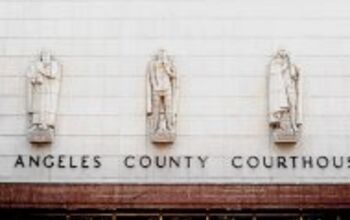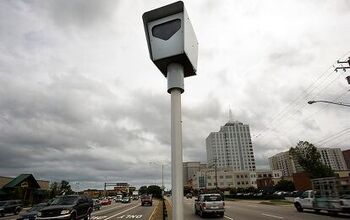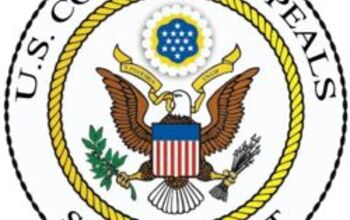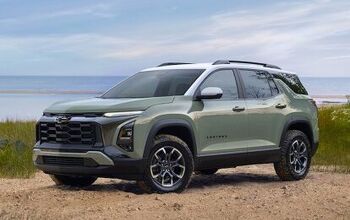Federal Appeals Court Defends Red Light Cameras
Judges in the country’s most activist federal circuit on Thursday ruled in favor of red light camera use in Washington state. A three-judge panel of the Ninth Circuit US Court of Appeals issued an unpublished memorandum order dismissing a state law challenge to the photo fine amounts and “cost neutrality” compensation arrangements of municipalities.
Lawyers for ticket recipients had originally filed their argument in King County Superior Court, but American Traffic Solutions (ATS), which operates the cameras, has learned that the federal bench is far more sympathetic to their business. ATS successfully moved to have the case transferred to a US district court where it prevailed last year ( view ruling). Daniel F. Johnson, the lawyer who represented the motorists, argued the case had no business being decided by federal judges.
“Because this is a distinctly local controversy, it should be ordered remanded to state court,” Johnson argued in briefs filed with the court.
The appellate court was not interested in sending the case back. Instead, it allowed no discovery, development of the record or consideration of the intent of Evergreen State lawmakers. State law says that red light camera fines shall not exceed the amount of the city’s parking tickets, and ATS argued that the provision allows the fine to be as high as $250, the cost set by the state for parking in a handicapped zone without a permit. Johnson argued that the law, which is worded as a limitation, would be utterly pointless unless it were reduced fines to $20 or $40 — a position confirmed by floor statements made by the state senator who wrote the law. The judges sided with ATS.
“Because the plain language of section 46.63.170(2) unambiguously authorizes the fines the defendants impose, we are precluded from considering the plaintiffs’ argument that the legislative history compels a contrary conclusion,” the appellate judges wrote.
Johnson also argued that a state law forbidding cities from compensating photo ticketing vendors based on the amount of revenue generated meant that “cost neutrality” arrangements violated the legislature’s intention to eliminate a financial incentive for vendors to issue more tickets. The motorists’ lawyers argued that up to a certain level, the contracts effectively pay vendors on a per ticket basis. Again, the Ninth Circuit disagreed.
“The cost neutrality provisions alter the timing of fee payments in accordance with monthly revenue fluctuations, but they do not base the amount of fees upon a portion of the revenue generated,” the appellate judges wrote.
The judges went further to argue that the $5 per ticket fee charged after the first 800 citations were issued was not compensation based upon the amount of citations issued. A copy of the decision is available in a PDF file at the source link below.
Todd v. City of Auburn (US Court of Appeals, Ninth Circuit, 3/31/2011)
[Courtesy: Thenewspaper.com]
More by Edward Niedermeyer
Latest Car Reviews
Read moreLatest Product Reviews
Read moreRecent Comments
- Probert They already have hybrids, but these won't ever be them as they are built on the modular E-GMP skateboard.
- Justin You guys still looking for that sportbak? I just saw one on the Facebook marketplace in Arizona
- 28-Cars-Later I cannot remember what happens now, but there are whiteblocks in this period which develop a "tick" like sound which indicates they are toast (maybe head gasket?). Ten or so years ago I looked at an '03 or '04 S60 (I forget why) and I brought my Volvo indy along to tell me if it was worth my time - it ticked and that's when I learned this. This XC90 is probably worth about $300 as it sits, not kidding, and it will cost you conservatively $2500 for an engine swap (all the ones I see on car-part.com have north of 130K miles starting at $1,100 and that's not including freight to a shop, shop labor, other internals to do such as timing belt while engine out etc).
- 28-Cars-Later Ford reported it lost $132,000 for each of its 10,000 electric vehicles sold in the first quarter of 2024, according to CNN. The sales were down 20 percent from the first quarter of 2023 and would “drag down earnings for the company overall.”The losses include “hundreds of millions being spent on research and development of the next generation of EVs for Ford. Those investments are years away from paying off.” [if they ever are recouped] Ford is the only major carmaker breaking out EV numbers by themselves. But other marques likely suffer similar losses. https://www.zerohedge.com/political/fords-120000-loss-vehicle-shows-california-ev-goals-are-impossible Given these facts, how did Tesla ever produce anything in volume let alone profit?
- AZFelix Let's forego all of this dilly-dallying with autonomous cars and cut right to the chase and the only real solution.

































Comments
Join the conversation
Well the nice thing about this is the revenue will continue to flow, and that remains the primary focus. There is little doubt in my mind this was the motivating factor, the 9th district supports government in general when it comes to funding. My suggestion is to move. The tickets in CA are worse and you will find where ever the debts are highest so are traffic fines.
The Ninth Circuit again stands behind government rapaciousness but with typical Ninth Circuit fortitude doesn't publish its decision making it unusable as precedent.